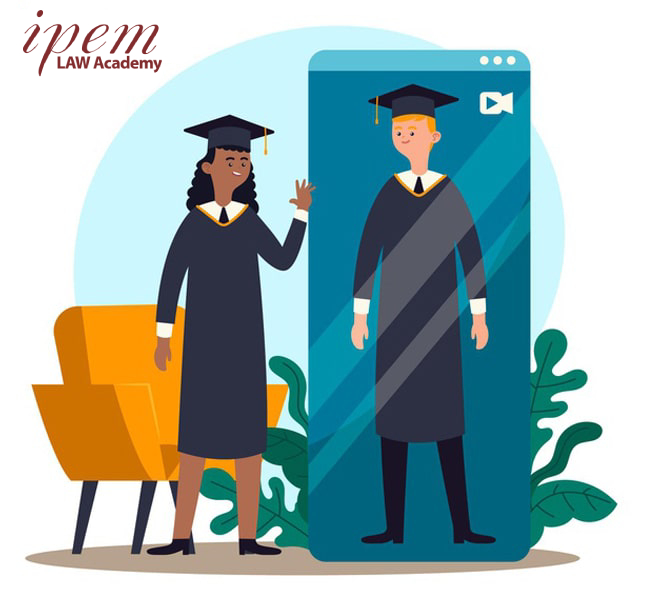Moot Court Competition
1. Title of the Practice
Moot Court Competition at Academy level as well as National Level.
2. Objectives of the Practice
The Benefits of Participating in Moot Court Competitions provides an opportunity for students to build advocacy skills, sharpen public speaking skills, and engage in legal analysis in a variety of areas of law. Moot Court helps in the overall development of an individual as a good and proficient lawyer and participating in Moot Court Competition regularly makes a student familiar with the proceedings that take place generally in real courtrooms. Participating in the Moot Court competitions helps in enhancing researching skills because it is research on the basis of which one will be contesting case and representing Client and it also helps in framing a good Moot Court Memorial on the basis of which the other team would raise objections and questions. This will also help in enhancing the skills as to how to adapt to prompt situations and how to tackle situations where one is at unease. Moot Court helps an individual to build his confidence in communicating and putting his view in front of the people. It helps a person to build his confidence to such an extent that he/she does not fear to question or to speak in front of anybody and can fight cases efficiently. Moot Court helps in giving the practical implication and knowledge to the students who are studying law in such a way which they will never find in the books and would be unaware of, as practical and theoretical knowledge are like two different sides of the same coin and to pass the hurdle one need to study both of them although both look same but are totally opposite in reality.
3. The Context
Our students are on a mission towards better India by breaking the boundaries of religion and caste. Thoughts of great Indian personalities sowed into the young minds through the exhibitions and programs conducted on these days. The institution practices pluralist approach towards all religion functions and encourages the students and faculty to showcase the same. Staff and students get to know the importance of national integrity in the country in general and their role in it in particular. IPEM Law Academy is a dynamic, creative learning institution that strives to meet challenges by providing innovative solutions leading to learning break through for all students. It is dedicated to establish strong, just upright minds and develop the talents of the students thereby to discover their greatness. Therefore the college by organizing competition has given an opportunity to the students, to explore their talent and presenting skills with reference to the various Moot Problem.
4. The Practice
IPEM Law Academy organizes 3 Moot Courts in every Academic Semester. In which each team comprises of 3 students with one as the Researcher and the other two as the speakers (Mooters) presenting their arguments on either side. This teaches the students to perform well when they are together in as a team and analyze what are their strengths and weakness, how can they work upon them to achieve maximum efficiency. It also helps to work with people who are different from you and it also teaches how to coordinate with each other. The main purpose of moot Court is to establish a good overview by the students of law and enhancing the legal skills. It teaches the students how to work under pressure with the goal to give productive output.
Mooting is not just about presenting propositions of law. An important aspect is applying those propositions to the facts in order to argue for the result. The Participant should be very familiar with the moot problem and be able to take the judge to relevant paragraphs in it. You will often make extensive use of authority in delivering your submissions. You need to know what principle a given case stands for and if a case is binding on the court before which the moot is being argued.
A critical aspect of mooting is time management. You need to be able to expand or contract your submissions depending on how interventionist the judge is.
The procedure imitates that followed in real courts: the judge enters, the mooters and the judge bow to each other, the clerk announces the matter, the mooters give their appearances and are then called on in turn to present their submissions, the judge asks questions of the mooters, the court adjourns, and the judge then returns to deliver a brief judgment and some feedback.
5. Evidence of Success
Students are exposed to new and contemporary areas of law every year. The competitions are appreciated by all students. This competition also motivates students to go for Litigation. The main purpose of moot Court is that to make you practice before actually becoming a professional and practicing in courtrooms about everything. If you have years of practice then it is easier for one to make a lot of clients because of his practice and knowledge one has gained in the field. Students who participate first time in this kind of activities not only get the exposure but also the motivation to take part in a more comprehensive way and in other competition and moots as well. These kinds of Moot Court competitions boost up the morale of the students and help them to talk passively and hence put forth their ideas in front of anybody if earlier they were hesitant to do so.
In 2020 we also organized National Moot Court Competition in which 20 Teams of different Universities /Institutes registered . The event was organized on 31st January & 1st February, 2020 and was chaired by various legal luminaries.
6. Problems Encountered and Resources Required
Students faced problem in drafting Memorial. Students coming from rural areas need additional training and help to take benefits of the resources for drafting memorials as some of them are not computer literate. The learner has to read the moot problem carefully and thoroughly to have a clear understanding of the facts but generally students don’t read carefully and thoroughly the facts which is the reason for their failure.
Legal Aid and Awareness Camp
1. Title of the Practice
Legal Aid and Awareness Camp .
2. Objectives of the Practice
IPEM Law Academy was established by Late Dr. B. S. Goel, with an objective of providing legal education to the economically, educationally and socially weaker sections of the society. All efforts and initiatives have been taken to develop legal literacy for the betterment of the society at large that invoke awareness amongst students and teachers with regard to social accountability and social responsibility.
The main object of legal aid camp is to provide knowledge to student about legal aid & ensure equal justice. Legal aid is necessary in developing countries so long as poor exist in the society. Due to lack of knowledge, people are not aware of their rights and thereby are troubled by the powerful and lose the benefits provided by the state.
3. The Context
As we know that about 70% of the people living in rural areas and most of them are illiterate and are not aware of the rights conferred upon them by law. Even literate people do not know what are their rights and entitlements under the law. It is this absence of legal awareness which is responsible for the deception, exploitation and deprivation of rights and benefits from which the poor suffer in this land. Legal awareness is essential aspect of our Curricular Activity. These camps are an effective way to help students develop interpersonal and professional skills. One cannot become skilled simply by reading about skills or watching others perform lawyering tasks.
4. The Practice
To ensure justice for all, safeguard popular rights, and promote legal empowerment of the society, need is always felt for making the public aware about their rights and entitlements. With the same token, such awareness can be credited for facilitating the aggrieved person to quickly take resort to channels available for the redressal of grievances, through agencies like the Police, the Executive and the Judiciary. Further the awareness of one’s legal rights paves the way for participation of the masses in the decision making process.
It is due to this situation, that Legal awareness has been recognized as a tool of qualitative change at the basic level as it provides them with the adequate knowledge of their rights. Legal literacy connotes the knowledge of the primary level in law. After the citizens (particularly marginalized or underprivileged groups) become aware of the rights provided to them by law, they can use such awareness as a tool to fight injustices. Such awareness can transform their lives. Legal awareness is the first step to that end.
A democracy is meaningless, unless the people know their basic human rights like education, employment and the right to live a life of dignity and self respect. Such awareness is possible only through the mechanism of legal literacy. Legal literacy, being the first step towards knowledge of the law, the Mission aims at legal education of all sections of society.
We are organizing legal aid and Awareness camp at villages to provide legal aids to needy persons. These camps are organized for the progressiveness of society and upliftment of masses. Free legal aid camps provide information relating to the social and economic justice, protection of legal rights, constitutional rights. human rights, legal awareness, legal education to the weaker section of the society. We are also a part of Unnat Bharat Abhiyaan under which we have been allotted 5 Villages. The Unnat Bharat Abhiyan Scheme launched by Government of India to facilitate the people of villagers who are living in very poor atmosphere. By this scheme the Government want to improve the life style & living conditions of poor people. We also organize camp in those villages and create awareness among the villagers.
5. Evidence of Success
The effective implementation of these camps, especially for economically weaker section of society made it possible to aware the society about their rights and spread legal literacy in the society.
This camp explained the different provisions of law relating to women as Indian Penal Code, Criminal Procedure Code, 1973, Hindu Marriage Act, 2005 & Protection of Women from Domestic Violence Act, 2005. Students also expressed their thought on the topic and explained legal aid camp can help in solving their legal problem. Some local residents asked their solution for the legal problems they are facing in the present situation such as physical assault, property dispute, kidnapping etc. In legal aid camp students were divided into group consists of 4 or 5 and they accessed to the different locality with the material related to legal aid, admission pamphlets and met with the local resident and tried to solve their legal problem personally. The residents were informed that if any query they can contact our legal aid clinic located in the IPEM Law Academy campus.
6. Problems Encountered and Resources Required
It is said that the Poor man looks upon the law as an enemy, not as a friend. For him the law is always taking something away. The legal aid system in India has proven ineffective because there is a perception that free service is incompatible with quality service. The legal aid movement cannot achieve its goal so long as people are not aware of their basic rights. When the poor are not aware of their legal rights, they are subject to exploitation and ultimately deprived of the rights and benefits provided to them under law. Thus, the key to a successful free legal aid system is increased awareness among the populace and more efficient delivery processes.
In most of the villages local political groups at times cause hindrance in conducting Camp for their personal motives to take the credit in organizing such camps.


